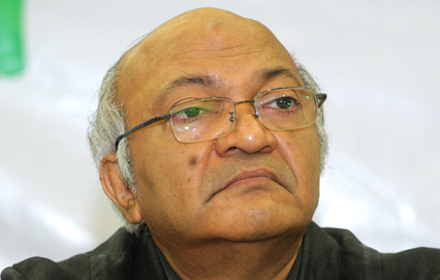Government’s peace talk team beefed up
The government is taking steps to convince the Barisan Revolusi Nasional (BRN) separatist group of its commitment to the peace dialogue process and to encourage the rebel group to respond in kind ahead of the third round of peace talk scheduled in Kuala Lumpur on June 13.

The steps include a plan to relocate prisoners and detainees of security-related charges to prisons in their native provinces; withdrawal of charges and arrest warrants on suspects against whom incriminating evidences are weak or inadequate; selective lifting of emergency decree in areas where violence has subsided satisfactorily and unilateral scale-down of military operations to search for or hunt down suspected separatists.
On top of that, the government will push for a joint declaration with the BRN to demonstrate their intention to work for peace in the restive deep South. A think tank comprising peace advocates, including Thammasat University’s lecturer Chaiwat Satha-anan, is to be set up to assist the government’s negotiating team headed by Lt-Gen Paradorn Pattanathabut, secretary-general of the National Security Council.
An informed source close to Paradorn’s negotiating team said that the idea of a think tank emerged from a brain storming session held on May 13 by the Office of the Research Support Fund to gauge divergent views on how to resolve the unrest problem.
The source noted that the think tank was needed after the government’s negotiating team was caught off-guard when the BRN came up with five demands through the social media.
Mr Chaiwat, said the source, has been invited by the team to stage public hearings in the three southernmost provinces to gauge the opinions of the local people which will be collated and used in dealing with the separatists.
As for the issue regarding arrest warrants for security-related cases, the Southern Border Provinces Administration Centre and the Office of the Attorney-General will work together to consider the withdrawal of warrants for certain suspects.
Regarding the planned lifting of special laws which include the emergency decree, the Justice Ministry and the Internal Security Operations Command have been assigned to work out which areas that will be removed of the decree.
Mr Charnchao Chaiyanukit, deputy justice permanent secretary, said that Article 21 of the Internal Security Act which allows defectors to undergo six-month re-education with their charges dropped would be reviewed.
Meanwhile, Deputy Prime Minister Chalerm Yubamrung who is in charge over overseeing security affairs in the deep South said that if the peace talks continue for the next few rounds and still fail to produce any positive results, he would urge Kuala Lumpur to deny shelter to several separatist leaders and suspected separatists known to be taking refuge in Malaysia.
Mr Chalerm said since he is in charge of security affairs in the far South, Paradorn’s negotiating team must seek his consultation before they meet with the BRN counterpart.
To beef up his own advisory team, Mr Chalerm has appointed three new advisors namely Deputy Interior Minister Pracha Prasobdee, Pol Gen Panupong Singhara na Ayudhaya and Suporn Atthawong, a red-shirt leader and deputy secretary-general of the prime minister.
He also plans to include his youngest son, Pol Cpt Duang, in his working committee.
---------------------------------------------------------------------------------------------------------------------------
Caption : Chaiwat Satha-anan, Thammasat University’s lecturer
